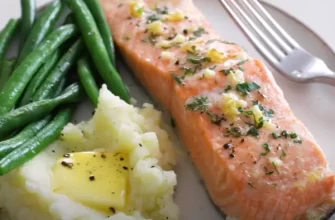When it comes to shedding those extra pounds, many people are on the lookout for fast and effective weight loss methods. However, it’s important to approach weight loss in a healthy and sustainable way.
Crash diets and extreme measures may offer quick results, but they often come with negative consequences for your overall well-being. It’s crucial to prioritize your health while aiming for fast weight loss.
Overview of fast weight loss methods and their effectiveness:
- Calorie restriction: Consuming fewer calories than your body needs can lead to weight loss. However, extreme calorie restriction can be harmful and unsustainable in the long run.
- Intermittent fasting: This method involves alternating periods of fasting and eating. It has shown promising results for weight loss, but it may not be suitable for everyone.
- High-intensity interval training (HIIT): HIIT workouts consist of brief periods of vigorous physical activity combined with intervals of rest. These workouts are effective in calorie burning and boosting metabolism, thereby supporting weight loss efforts.
- Mindful eating: Paying attention to your body’s hunger signals and adopting a mindful approach to eating can help avoid excessive eating and support weight reduction.
- Incorporating whole foods: Concentrating on wholesome foods that are filled with nutrients such as fruits, vegetables, lean proteins, and whole grains can aid in achieving a healthy weight loss.
Calorie Deficit
When aiming for rapid and efficient weight loss, it is important to focus on creating a calorie deficit. This involves consuming fewer calories than what your body requires to sustain its present weight. By doing this, your body will be compelled to utilize its stored fat reserves as fuel, subsequently leading to a reduction in weight.
To achieve a calorie deficit, you can either reduce your calorie intake through mindful eating or increase your calorie expenditure through physical activity. It’s important to find a balance that works for you and your lifestyle.
It’s worth noting that while creating a calorie deficit is essential for fast weight loss, it’s equally important to ensure you are still providing your body with the necessary nutrients it needs to function optimally. This can be achieved by choosing nutrient-dense foods and incorporating a variety of fruits, vegetables, lean proteins, and whole grains into your diet.
Remember, sustainable weight loss is a gradual process that requires consistency and patience. It’s always recommended to consult with a healthcare professional or registered dietitian before embarking on any drastic weight loss plan.
Intermittent Fasting
Are you looking for a science-backed approach to fast weight loss? Intermittent fasting might be the solution you’ve been searching for. This eating pattern has gained popularity in recent years due to its potential effectiveness in shedding pounds quickly.
Exploring the benefits and effectiveness of intermittent fasting for rapid weight loss
Intermittent fasting involves alternating periods of eating and fasting. It can be done in various ways, such as the 16/8 method (fasting for 16 hours and eating within an 8-hour window) or the 5:2 diet (eating normally for 5 days and restricting calories for 2 days).
Research suggests that intermittent fasting can lead to weight loss by reducing calorie intake, boosting metabolism, and promoting fat burning. It may also have additional health benefits, including improved insulin sensitivity, reduced inflammation, and enhanced brain function.
However, it’s important to note that intermittent fasting may not be suitable for everyone. Individuals with certain medical conditions or those who are pregnant or breastfeeding should consult with a healthcare professional before starting this eating pattern.
Incorporating intermittent fasting into your lifestyle requires discipline and planning. It’s crucial to prioritize nutrient-dense foods during your eating periods and stay hydrated throughout the fasting periods.
High-Intensity Interval Training (HIIT)
When it comes to fast weight loss, High-Intensity Interval Training (HIIT) has been proven to be an effective and science-backed approach. HIIT involves short bursts of intense exercise followed by brief recovery periods. Here’s why it works:
The science-backed approach of HIIT for quick weight loss
- Increased calorie burn: HIIT workouts are designed to maximize calorie burn in a short amount of time. The intense bursts of exercise increase your heart rate and metabolism, leading to a higher calorie burn both during and after the workout.
- Preservation of muscle mass: Unlike traditional steady-state cardio exercises, HIIT workouts help preserve muscle mass while burning fat. This is important for maintaining a healthy body composition and preventing muscle loss during weight loss.
- Improved cardiovascular fitness: HIIT workouts challenge your cardiovascular system, improving your overall fitness level. This can lead to increased endurance and stamina, allowing you to push harder during workouts and burn more calories.
- Time-efficient: One of the biggest advantages of HIIT is its time efficiency. With HIIT, you can achieve the same or even better results compared to longer duration workouts in a fraction of the time.
Remember, while HIIT can be highly effective for quick weight loss, it’s important to listen to your body and start at a level that is appropriate for your fitness level. Gradually increase the intensity and duration of your workouts as you progress. Always consult with a healthcare professional before starting any new exercise program.
Low-Carb and Ketogenic Diets
For those looking to shed pounds quickly and effectively, low-carb and ketogenic diets have gained significant popularity. These diets focus on reducing carbohydrate intake and increasing fat consumption, which triggers a metabolic state called ketosis.
Examining the role of low-carb and ketogenic diets in achieving fast weight loss
- Reduced Hunger: Low-carb and ketogenic diets have been shown to reduce hunger and cravings, making it easier to maintain a calorie deficit and lose weight.
- Increase in Metabolism: These diets can increase metabolic rate, allowing the body to burn more calories even at rest.
- Effective Fat Burning: By limiting carbohydrate intake, the body is forced to use stored fat as its primary source of energy, resulting in faster fat burning.
- Reduced Water Retention: Low-carb diets can lead to a significant reduction in water weight due to a decrease in glycogen stores.
- Blood Sugar Regulation: By minimizing carbohydrate intake, low-carb and ketogenic diets can help regulate blood sugar levels, which is beneficial for individuals with insulin resistance or diabetes.
While low-carb and ketogenic diets can lead to rapid weight loss, it’s important to note that long-term sustainability and overall health should also be considered. Consulting with a healthcare professional or registered dietitian is recommended before starting any new diet plan.
Remember, everyone’s body is unique, so what works for one person may not work for another. It’s essential to find a weight loss approach that suits your individual needs and goals.
Adequate Protein Intake
When it comes to fast weight loss, incorporating adequate protein into your diet is crucial. Protein is not only essential for building and repairing tissues, but it also plays a significant role in boosting metabolism and reducing appetite.
The importance of consuming enough protein for accelerated weight loss
- Increased metabolism: Protein has a higher thermic effect compared to carbohydrates or fats, meaning your body burns more calories digesting and metabolizing protein. This can help speed up your metabolism and promote weight loss.
- Reduced appetite: Protein is known to increase feelings of fullness and reduce hunger cravings. By including protein-rich foods in your meals and snacks, you can curb your appetite and prevent overeating.
- Promotes muscle retention: During weight loss, it’s important to preserve muscle mass. Consuming enough protein helps maintain muscle tissue, which is crucial for overall body composition and preventing muscle loss.
- Supports fat burning: Protein can aid in the breakdown of stored fat, leading to increased fat burning and weight loss.
To achieve fast weight loss, aim to include lean sources of protein such as chicken, fish, tofu, beans, and Greek yogurt in your meals. Consult with a healthcare professional or registered dietitian to determine the appropriate protein intake for your specific needs and goals. Remember to combine a balanced diet with regular physical activity for optimal results.
Mindful Eating and Portion Control
When it comes to fast weight loss, many people turn to crash diets or extreme exercise routines. However, a more sustainable and scientifically-backed approach is to focus on mindful eating and portion control.
- Slow down: Take your time while eating, savoring each bite and paying attention to your body’s hunger and fullness cues. This allows you to better regulate your food intake.
- Portion control: Use smaller plates and bowls to visually trick your brain into thinking you’re consuming a larger portion. Additionally, measure your food servings to ensure you’re not overeating.
- Avoid distractions: Minimize distractions such as watching TV or using electronic devices while eating. This helps you stay present and focused on your meal, preventing mindless overeating.
- Listen to your body: Eat when you’re hungry and stop when you’re satisfied, rather than eating until you’re overly full. Trust your body’s signals and avoid emotional or stress-related eating.
- Mindful food choices: Opt for nutrient-dense foods that provide satiety and nourishment. Include plenty of fruits, vegetables, lean proteins, whole grains, and healthy fats in your meals.
By incorporating these strategies into your daily routine, you can support rapid weight loss in a healthy and sustainable way. Remember, it’s important to consult with a healthcare professional before making any significant changes to your diet or exercise regimen.
Sleep and Stress Management
Getting enough quality sleep and effectively managing stress are crucial factors when it comes to achieving fast weight loss.
When you don’t get enough sleep, it can disrupt your body’s hormonal balance, leading to increased hunger and cravings for unhealthy foods. Lack of sleep also affects your metabolism, making it harder for your body to burn calories efficiently.
Stress, on the other hand, triggers the release of cortisol, a hormone that can promote weight gain, especially around the abdominal area. Additionally, stress often leads to emotional eating or reaching for comfort foods high in calories and fat.
To support fast weight loss, prioritize getting 7-9 hours of quality sleep each night. Establish a bedtime routine and create a sleep-friendly environment.
When it comes to stress management, find healthy coping mechanisms such as exercise, or engaging in hobbies you enjoy. It’s also important to identify and address the root causes of stress in your life.
By prioritizing quality sleep and effective stress management, you can optimize your body’s natural weight loss processes and achieve your goals faster. Remember, taking care of your overall well-being is essential for sustainable and long-term weight loss success.
Conclusion
Fast weight loss techniques based on science can be effective for those looking to shed pounds quickly. By implementing key strategies such as creating a calorie deficit, incorporating high-intensity interval training, and prioritizing protein intake, individuals can achieve their weight loss goals in a healthy and sustainable way.
- Create a calorie deficit: To lose weight, consume fewer calories than you burn through daily activities and exercise.
- Incorporate high-intensity interval training (HIIT): HIIT workouts are efficient and effective for burning calories and boosting metabolism.
- Prioritize protein intake: Protein helps to increase satiety, preserve muscle mass, and support fat loss.
- Stay hydrated: Drinking enough water can help reduce appetite and support overall health.
- Get enough sleep: Sufficient sleep is essential for weight management as it affects hormones that regulate hunger and fullness.
- Avoid processed foods: Focus on whole, nutrient-dense foods to support weight loss and overall health.
Frequently Asked Questions
Q: Is fast weight loss safe?
A: Fast weight loss can be safe if done in a healthy and sustainable manner. It is important to consult with a healthcare professional before starting any new diet or exercise program.
Q: How much weight can I expect to lose with fast weight loss techniques?
A: The amount of weight you can lose will vary depending on factors such as your starting weight, body composition, and adherence to the techniques. It is important to set realistic goals and prioritize overall health rather than solely focusing on the number on the scale.
Q: Are there any potential risks associated with fast weight loss?
A: Rapid weight loss can sometimes lead to nutrient deficiencies, muscle loss, and a slowed metabolism. It is important to approach weight loss with a balanced and sustainable approach to minimize these risks.









